Zarif Ridicules Iranian Anti-Regime Protests
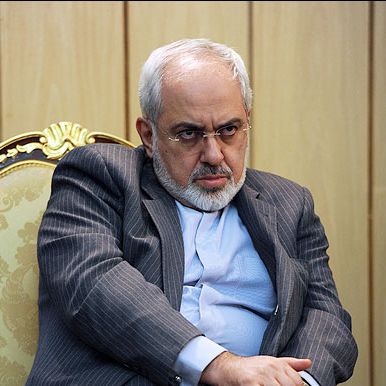
Referring to Iran’s protest movement in 2022, former foreign minister Mohammad Javad Zarif has said those involved thought the Islamic Republic would fall with a few slogans.

Referring to Iran’s protest movement in 2022, former foreign minister Mohammad Javad Zarif has said those involved thought the Islamic Republic would fall with a few slogans.
Addressing a meeting called “The New Order of the World” in the capital city Tehran, he accused the demonstrators of “wishing too much,” adding that it is a general characteristic of Iranian society.
Iran witnessed massive protests after Mahsa Amini, a 22-year-old woman, was killed in September 2022 while she was in morality police's custody. According to reports, more than 500 demonstrators were killed by regime’s security forces in a few weeks.
Zarif also discussed the increasing wave of emigration from Iran, saying many are idealistically after finding a paradise in foreign countries.
“They do not know that they and their spouses have to work day and night so that they might be able to purchase a 60-meter house in installments,” he claimed.
Zarif’s remarks come against the backdrop of what some experts call Iran’s “emigration crisis.” Earlier in the month, Secretary-general of the Iranian Medical Society Mohammad-Reza Zafarqandi warned about emigration of elite workforce and professionals from various medical and non-medical sectors amid economic crisis, noting that vital signs pointing to an emigration crisis have reached a critical level.
Over the past weeks, Zarif has tried to espouse positions close to those of the establishment in Iran in an attempt not to fade away from the country’s political stage, according to observers.
Last week, he claimed the popularity of Iran's Palestinian proxy, Hamas, has “greatly increased” in the wake of the atrocities of October 7. In January, Zarif also voiced support for Iran’s regional proxy groups, dubbed the “Axis of Resistance.”
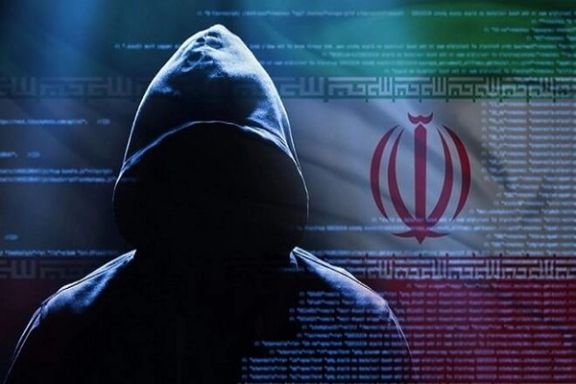
Washington-based cybersecurity firm Volexity has revealed that Iranian hackers have been launching spear phishing attacks against Middle Eastern policy experts.
Researchers at Volexity said Iranian-origin threat actor CharmingCypress (aka Charming Kitten, APT42, TA453) has been collecting political intelligence against foreign targets, particularly focusing on think tanks, NGOs, and journalists.
“In their phishing campaigns, CharmingCypress often employs unusual social-engineering tactics, such as engaging targets in prolonged conversations over email before sending links to malicious content," the firm said.
In one case of spear-phishing campaign mentioned by the security firm, CharmingCypress went so far as to craft an entirely fake webinar platform to use as part of the lure. Spear phishing is when cybercriminals send emails that look like they are from a trusted source to trick specific people or departments in a company to steal secret information. CharmingCypress controlled access to the webinar platform, requiring targets to install malware-laden VPN applications prior to granting access.
In September and October 2023, CharmingCypress engaged in a series of spear-phishing attacks in which they masqueraded as the Rasanah International Institute for Iranian Studies (IIIS). CharmingCypress registered multiple, typo-squatted domains (rasaneh-iiis[.]org) for use in these attacks that are similar to the organization’s actual domain, rasanah-iiis[.]org. Rasanah International Institute for Iranian Studies is a research institute in Riyadh, Saudi Arabia, focusing on Iran’s politics.
“Inspecting the fake webinar portal shows the threat actor invested a significant level of effort,” Volexity said, adding that “The portal included the logo of the impersonated organization within a full web portal interface."

The non-conformist Iranian film “My Favorite Cake” was premiered on Friday at the 74th Berlin International Film Festival (Berlinale), where it received a 7-minute standing ovation.
Behtash Sanaeeha and Maryam Moqadam, the co-directors of the film, dedicated “My Favorite Cake” to “the dignified and free women of Iran.”
Produced secretly over the past two years in Tehran, the film has defied the Iranian regime’s draconian censorship rules and regulations by depicting women without compulsory hijab.
It represents normal lives of Iranians without government censorship, including such long-held cinematic taboos as men and women shaking hands, touching, hugging and drinking wine.
On Friday, the second day of the Berlin Film Festival, the press conference for "My Favorite Cake" was held without the attendance of the co-directors, who have been barred from leaving the country by the Islamic Republic. According to reports, the conference proceeded with photos of the two filmmakers on their empty seats as a gesture of commemoration.
During the press conference, Leili Farhadpour, one of the actors of the film, read Sanaeeha and Moqadam’s statement in their absence.
“We have come to believe that it is no longer possible to narrate the story of Iranian women by conforming to such strict rules as compulsory hijab,” the statement said, further adding that the red lines have for long precluded “the representation of the real lives of Iranian women as complete human beings.”
They added that Iranian filmmakers have been for many years facing stringent rules and red lines, the rejection of which can lead to arrests, long professional bans and complicated legal procedures.
In order to show one aspect of the reality of Iranian society which has been “lost in different layers of censorship” for years, we decided to cross all these red lines and we accept the consequences of our decisions, Sanaeeha and Moqadam stressed.
“My Favorite Cake” portrays the everyday lives of middle-aged women in contemporary Iran, with a special focus on the loneliness of a woman on the verge of old age.
The protagonist of the film is a 70-year-old woman, a role played by Leili Farhadpour, who experiences a new love following her husband’s death.
It has been a taboo for the Iranian cinema to show old women fall in love again, Farhadpour said during the film’s press conference in Berlin.
Referring to the regime’s strongly-policed red line to depict women always with hijab in Iranian films, even in their homes or while taking a shower, Farhadpour tauntingly added: “Women do not wear hijab when they sleep and the audience laughs when they [female actors] go to bed wearing a hijab in movies,” that are forced to implement censorship rules.
According to her, it was in the middle of filming “My Favorite Cake” that the Woman, Life, Freedom movement started in Iran in 2022.
“From the very beginning, the work was to be made in this way without women having to wear hijab,” she stressed.
Four months ago, Iranian security forces stormed the house of the film’s editor and confiscated all the computer and electronic archives of the film.
On September 30, the police forces seized the passports of Sanaeeha and Moqadam when the couple wanted to travel to France to continue to work on the completion of “My Favorite Cake.” Since then, a legal case has been filed against them.
Earlier in the month, Berlinale directors Carlo Chatrian und Mariëtte Rissenbeek called on the Islamic Republic of Iran to allow the two filmmakers to leave the country and attend the festival.
“The Berlinale is a festival fundamentally committed to freedom of speech, freedom of expression and freedom of the arts … and the festival is shocked and dismayed to learn that Moghaddam and Sanaeeha could be prevented from traveling to the festival to present their film and meet their audience in Berlin,” said Chatrian and Rissenbeek in a joint statement.
“We call for the Iranian authorities to return the passports and to end all restrictions” for the filmmakers, the statement went on to say.
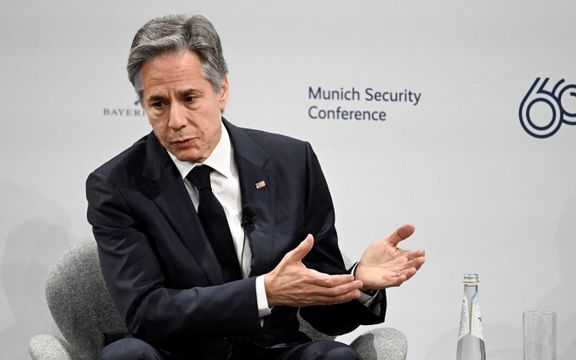
US Secretary of State Antony Blinken has underscored a significant opportunity for Israel to normalize relations with its Arab neighbors.
Speaking at the annual Munich Security Conference, Blinken noted genuine efforts by Arab nations to bolster the Palestinian Authority, enabling it to better serve the Palestinian people.
"Virtually every Arab country now genuinely wants to integrate Israel into the region to normalize relations...to provide security commitments and assurances so that Israel can feel more safe."
"And there's also, I think the imperative, that's more urgent than ever, to proceed to a Palestinian state that also ensures the security of Israel," he added.
The Biden administration is actively pursuing a substantial agreement to normalize relations between Saudi Arabia and Israel, with Arab nations advocating for a Palestinian state as part of the deal.
The agreement regarding hostages of the October 7 surprise attack and the temporary humanitarian ceasefire are viewed as pivotal in facilitating progress towards discussions on a normalization agreement between Saudi Arabia and Israel. These talks were initially halted in the aftermath of the attack but have since resumed in recent months.
Discussions are ongoing regarding Gaza's post-conflict future, reforms within the Palestinian Authority to potentially govern the region, and establishing a pathway for a Palestinian state, according to US officials.
Iran's proxies in Syria, Iraq, Lebanon and Yemen have joined Hamas's war on Israel and US interests in the region since October 7 when Gaza-based Hamas invaded Israel.
Iran continues to deny its involvement in the atrocities of October 7 in which 1,200 mostly civilians were murdered by Hamas and another 250 or more taken hostage to Gaza. However, Tehran continues its very public, high level engagement with Palestinian militant groups which it has for years funded, armed and trained.
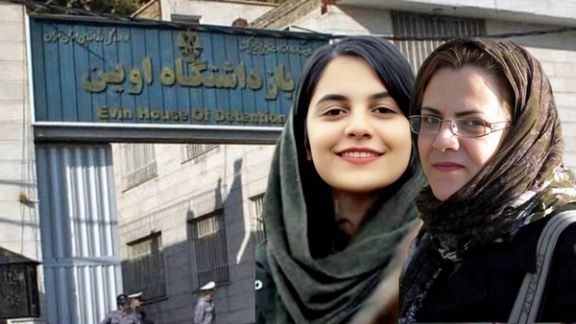
Marzieh Farsi and Forough Taghipour, two female Iranian political detainees held in Evin Prison, have been handed down 15-year prison sentences each by the Tehran Revolutionary Court.
According to reports from the US-based Human Rights Activists News Agency (HRANA), Farsi and Taghipour, previously charged with "armed rebellion," were convicted for alleged affiliation with anti-government groups in a joint case.
Their trial was conducted without their presence in court, as they refused to recognize the court's legitimacy and opted out of attending the session.
The two women were arrested on August 21 in Tehran, both having a history of detention and imprisonment for their activism.
HRANA underscored that Farsi is battling cancer and is in poor physical health.
In addition, Parvin Mir-Asan, a 66-year-old political detainee involved in the 2022 protests, remains incarcerated in Evin Prison for 15 months and 15 days without a trial and an end in sight. Informed sources reveal Mir-Asan's health issues, including diabetes, Parkinson's disease, joint problems, and neurological disorders, exacerbated by the lack of proper medical care.
The Islamic Republic has persistently detained, tortured, and imprisoned civil and political dissidents since its establishment.
The nationwide uprising against the Islamic Republic since September 2022 has witnessed escalated government repression against civil, political activists, and protesters, continuing unabated.
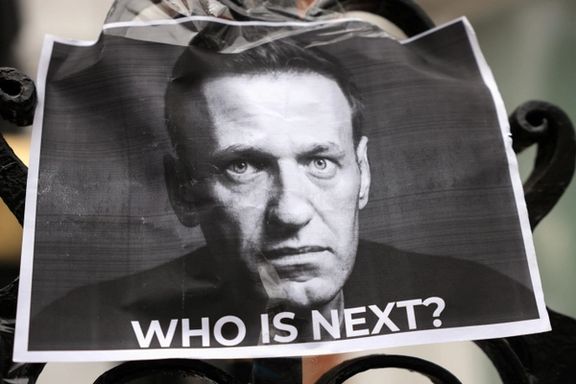
Iranian opposition activists have unequivocally condemned the sudden suspicious death of Alexei Navalny, an outspoken critic of Russian President Vladimir Putin.
The Iranian regime is a close ally of Vladimir Putin, while opposition activists see the relationship as an unholy alliance between two brutal dictatorships.
Citing figures provided by World Liberty Congress as to the existence of over one million political prisoners around the world, prominent Iranian dissident Masih Alinejad criticized the inaction of democratic countries.
“Navalny's murder is a chilling reminder of how authoritarian regimes can kill innocent political prisoners while democratic countries are busy with empty condemnations,” she wrote on X, adding that “Putin, Khamenei and other dictators are not only killing dissidents within their countries but they are working together.”
“The alliance of dictators is the real threat facing global security. The problem is clear: when it comes to taking action, dictators are more united and determined than democratic countries,” she further remarked.
Hamed Esmaeilion, another opposition figure, hailed Navalny as a hero and stated that biological terror, exile and prison all failed to silence his voice in the struggle for freedom.
He will be remembered for his greatness and courage contrary to such criminal dictators as Vladimir Putin, Ali Khamenei and Bashar al-Assad who belong to the abyss of history, Esmaeilion pointed out.
Mehrangiz Kar, lawyer and human rights activist, referred to the incident as a murder and said, “Putin, Khamenei’s mentor, killed Navalny, this great man.”
Actress and political activist Nazanin Boniadi urged democracies to take action against the killings of political prisoners by dictators.
“If democracies don’t stand united, autocracies will continue to murder their critics with impunity. Every freedom loving human should turn their outrage into action,” she wrote on X. Many ordinary Iranians also expressed their outrage on social media, likening the Iranian regime to Putin's dictatorial system.
However, the media close to the Iranian regime and the IRGC have been largely silent on Navalny's death. Fars news agency, affiliated with the IRGC, chose not to cover his death at all.
IRNA, the Iranian state news agency, dedicated its coverage of the incident only to the official stance of Russia, reactions of the international community and reports of arrests made during the vigils held in Russia to commemorate the leader of the opposition.
The same kind of coverage can be traced in Mehr news agency, close to Iran’s hardliners, which only reported Navalny’s death, international condemnations and Russia’s responses. Reflecting the remarks of Russian ambassador to Washington Anatoly Antonov, Mehr entitled one of its reports on the incident as “the US’ attempt to interfere with Russia’s internal affairs following Navalny’s death.”
IRGC-affiliated Tasnim news agency also employed the same reporting but not commenting strategy. In a short 7-paragraph report titled “Putin’s pro-West opponent dies: Who was Alexei Navalny?” Tasnim simply wrote about his trials and sentences.
The relatively more independent media in Iran, nonetheless, used a more analytical and investigative approach to Navalny’s demise.
Khabaronline traditional-conservative website mentioned the remarks of Ahmad Zeidabadi, a commentator in Tehran.
“Accepting that Navalny died of natural causes in a Russian prison is like accepting that Putin has fulfilled his repeated promises not to attack Ukraine,” Zeidabadi said, further adding that “the world is becoming a more cruel place day by day and Putin and Putinism play a significant role in this process.”
“It is as if the continuous rise and fall of autocratic leaders and regimes in Russia is the destiny of this great and genius-breeding country. May God save it,” he went on to say.
Reformist daily Shargh published an article entitled “Navalny and the Russian syndrome.” Referring to the fates of the prominent Putin critics such as Alexander Litvinenko, Yevgeny Prigozhin, Sergei Skripal, Alexander Perepilichny and Vladimir Kara-Murza, Shargh ironically attributed the incidents to “a Russia syndrome which affects Putin’s opponents.”